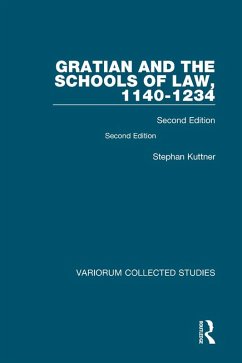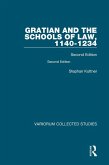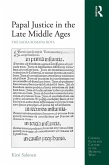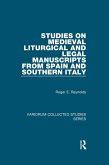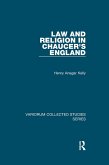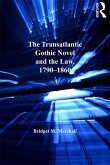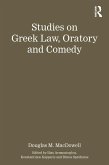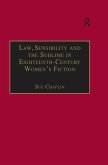The central figure in this volume is that of Gratian, whose monumental compilation of canon law sparked off the revival of legal studies in the medieval West. In other collections of essays, Stephan Kuttner dealt with the development of canon law in the two centuries that followed the publication of Gratian's Decretum, and the ideas that this engendered; here he is concerned with the foundations upon which all these later efforts were based. The work of Gratian is, of course, the principal focus, but the studies then follow the spread of the teaching of law, from its inception at Bologna in the 1140s to its appearance soon after in other centres of learning in the West. With a quarter of the volume consisting of additional notes and extensive indexes, it makes a contribution of the greatest importance to the historical study of canon law. For this second edition, a new section of additional notes has been supplied, and the volume is introduced with an essay by Peter Landau; these take account of the important recent work on Gratian and the Decretum and chart the significance of Stephan Kuttner's work.
Dieser Download kann aus rechtlichen Gründen nur mit Rechnungsadresse in A, B, BG, CY, CZ, D, DK, EW, E, FIN, F, GR, HR, H, IRL, I, LT, L, LR, M, NL, PL, P, R, S, SLO, SK ausgeliefert werden.

